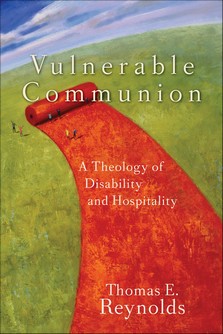 Again, last night I heard from a man about my age whose been locked up for more than 20 years. Plenty of the men I encounter have spent more time behind bars than outside them.
Again, last night I heard from a man about my age whose been locked up for more than 20 years. Plenty of the men I encounter have spent more time behind bars than outside them.
PLEASE, try to imagine that for a moment.
Want the truth? For some, the thought of going back “to the streets” as they call it, fills them with true dread and anxiety. The world outside of prison is full of unknowns and it’s absent of structure (like 3 meals a day, concrete expectations, and consistent scheduling). There are hazards and temptations, and of course, a bleak outlook employment for future employment. They have little or no ways for doing legitimate work. (Would YOU hire a felon?) Some inmates are so fearful of the outside and paralyzed by their prospects that they will purposefully break rules, hurt others, or commit crimes in prison to lengthen their sentence.
Imagine picking to be in prison rather that choosing to start over anew in freedom.
It seems insane, perhaps, until you realize the terrific poignancy:
Captivity is primarily is located in the mind.
This is just as true for non felons. • Too many of us walk around is prisons of our own making. We see closed doors instead of open ones. We let our past tell us a story about ourselves that can continue to enact. We feel trapped or confined with no way to truly free ourselves. We stay oppressed by sin, soul sickness, and slow forms of dying.
We all need healing to find the fruition of Justice.
True justice involves restoration and rehabilitation for re-entry into community and renewed relationships.
Even the Federal Government realizes this. Prisoners need to prepare ahead of time for release and transform their ways of thinking and doing things. New programs have launched that focus on acquiring skills and tools for successful re-entry into communities were a return to crime and old ways becomes less probable. Building more prisons isn’t working. Many of these re-entry programs focus on drawing from a deeper spiritual place and making choices based on the highest of morals to ensure that the best outcomes are the result. They rely on volunteers to help. Amazing that more resources aren’t carved out for something so important, huh? As a volunteer, I’m working multiple times per week teaching and guiding inmates to prepare them for their eventual release.
But God has put something else on my heart.
• I want my brothers behind bars to be missionaries to fellow-inmates. • I want them to be lights in that dark place. • I want them to pray for others and be sources of support and encouragement. • I want them to be vehicles of God’s love and rays of hope for everyone they encounter. Last night, I told them out loud. As I shared my vision with them, the excitement was palpable. They started smiling. They nodded in agreement. Some laughed because they had been thinking the same thing. God has been at work long before I showed up. They want to be a part of what God is doing. They want to be a part of something bigger in the family of God, now, and in the Kingdom of God past, present, and future. It’s a kingdom that was inaugurated fully with Jesus the King more than 2,000 years. It’s a Kingdom that will continue, as is has all over the world, all the way into eternity. Forever and ever, Amen.
In sharing a vision, where others can use their gifts and talents for a greater purpose, we inject meaning and hope. What power that has!
These men are men who are having their hope renewed.
Would you like to help?
Click here to learn more or volunteer. Click here to help me continue this ministry.





